AURA Board of Directors
Composition and Roles (PDF)
AURA’s mission is to enable astrophysics breakthroughs by creating and sharing universal access to world-class facilities. Our Board is elected by our Member Representatives to support this mission through their diverse backgrounds and collective skills. Our Board members act as trustees for the AURA enterprise, ensuring efficient operation of AURA and its Centers and advocating for the strategic advancement of astronomy through our facilities’ success.
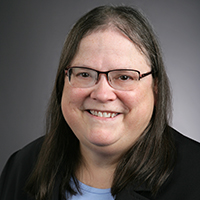
Karen Bjorkman
AURA Board Chair
University of Toledo
Karen Bjorkman received a B.S. in Physics from Univ. North Carolina, Chapel Hill, and M.S. and Ph.D. in Astrophysics from Univ. Colorado, Boulder. She was a staff scientist at Univ. Wisconsin, Madison for 7 years before moving to Univ. of Toledo, where she rose through the faculty ranks. There she also served as Department Chair, College Dean, and Provost before returning to her faculty role, from which she recently retired. Her research area is the circumstellar disks and winds of massive stars. She uses both space- and ground-based data, including spectropolarimetry, to study these objects. Karen Bjorkman is a Fellow of the American Astronomical Society and the American Association for the Advancement of Science.
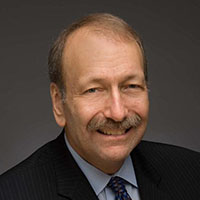
George Blumenthal
University of California, Santa Cruz
George Blumenthal is Chancellor Emeritus and Professor Emeritus of Astronomy and Astrophysics at the University of California, Santa Cruz. His Ph.D. degree is from UC San Diego, and his research interests include theoretical cosmology, the theory of cold dark matter, and active galactic nuclei. He was the chair of the UC system Academic Senate, the faculty representative to the UC Regents, and later UC Santa Cruz Chancellor from 2006-2019. He was also Director of the UC Berkeley Center for Studies in Higher Education. He has co-authored three books and serves on several nonprofit boards, including the California Institute for Regenerative Medicine, the Keck Observatory, and the American University of Armenia.

James Bullock
STIC Chair
University of Southern California
James Bullock is the 23rd dean of the USC Dornsife College of Letters, Arts and Sciences. He holds the Anna H. Bing Dean’s Chair and a faculty appointment in the Department of Physics and Astronomy. Before joining USC in 2025, Bullock was Dean of the School of Physical Sciences at UC Irvine, where he oversaw the departments of chemistry, earth system science, mathematics, and physics and astronomy. Bullock is also an accomplished astrophysicist who combines analytic models, supercomputer simulations, and sophisticated observation technology to explore galaxy formation, dark matter, and fundamental questions about the nature of the universe. He has authored or co-authored nearly 400 scholarly papers, reflecting his multiple distinctions as a Web of Science “Highly Cited Researcher in Space Science.”
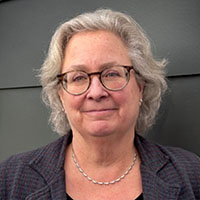
Emily CoBabe-Ammann
AURA Board Vice-Chair, SOC Chair
University of Colorado, Boulder
Dr. Emily CoBabe-Ammann is the Senior Advisor and Assistant Vice Chancellor for Research and Innovation at the University of Colorado, serving as the Chief Research Strategist to develop new research directions that align with national interests and priorities. She is currently the Acting Executive Associate Director for the Center for National Security Initiatives, working with the campus as it transitions towards conducting classified research. Over the last five years, she has led the campus quantum science and engineering strategic initiatives. Prior to joining CU, she was the Director of UCAR Community Programs, managing a $45M portfolio of education, training, data, and science support programs. Dr. CoBabe-Ammann received her Ph.D. in Earth and Planetary Sciences from Harvard University in 1991.
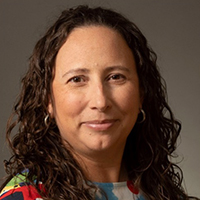
Kelle Cruz
NMOC Chair
Hunter College, City University of New York
Professor Kelle Cruz is an astronomer who earned her B.A. and Ph.D. in Physics and Astronomy from the University of Pennsylvania. She was a postdoctoral researcher at Caltech and the American Museum of Natural History. Currently, she is an Associate Professor at Hunter College, CUNY, and co-PI of the BDNYC research group, focusing on brown dwarfs. She is a member of the Coordination and Finance Committees of the Astropy Project. She is also a Research Associate at the American Museum of Natural History and a Visiting Scholar at the Flatiron Institute. Additionally, she founded AstroBetter.com and ScienceBetter Consulting.
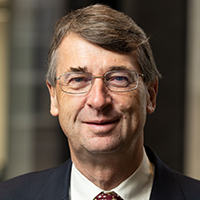
Roger Davies
University of Oxford
Roger Davies started his research in Cambridge and spent 6 years at NOAO in Tucson, Arizona. He worked out a new way of measuring the distances to galaxies and discovered the “Great Attractor”, a huge concentration of galaxy clusters in the southern sky. He moved to Oxford in 1988 to lead the UK’s participation in the 8m Gemini telescopes. In 1994 he took up the post of Professor of Astronomy at Durham University and in 2002 he returned to Oxford and served as Chairman of the Physics Department and Head of Astrophysics. He was the founding Director and led the Hintze Centre for Astrophysical Surveys until his retirement in 2022. He was also President of the Royal Astronomical Society and President of the European Astronomical Society. His research interests center on cosmology and how galaxies form and evolve.
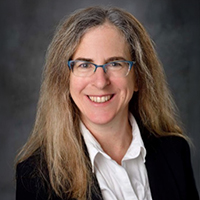
Megan Donahue
Michigan State University
Donahue grew up on a farm near Inland, Nebraska, a town of about sixty people. Her undergraduate physics S.B. degree is from MIT (1985) and her astrophysics Ph.D. is from the University of Colorado, Boulder (1990). Her post-doctoral research in observational astronomy was completed at the Observatories of the Carnegie Institution of Washington, in Pasadena, California and at the Space Telescope Science Institute (STScI) in Baltimore, Maryland. She joined STScI as a staff astronomer in 1995 working on astrophysics research, data archiving for the Hubble Space Telescope, and the development of the James Webb Space Telescope. In 2003, she moved to Michigan State University and re-entered academic life as a professor in the MSU Physics and Astronomy Department, in East Lansing, Michigan. She and her husband, Mark Voit have three adult children, Michaela, Sebastian, and Angela.
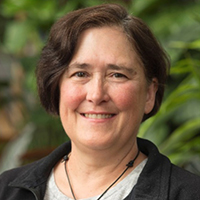
Brenna Flaugher
AMCR Chair
Fermilab
Dr. Brenna Flaugher is a Distinguished Scientist Emeritus at Fermilab, retired in May 2024. She started her career in particle physics on the Collider Detector at Fermilab Experiment. From 2003-2012 she was the project manager and scientific lead of the Dark Energy Survey Camera construction project and was awarded an American Physical Society Fellowship in the Division of Astrophysics in 2011. She led the Fermilab Astrophysics Department, participated in many Department of Energy/High Energy Physics and National Science Foundation project reviews, and served on multiple national committees. She was an early member of the Dark Energy Spectrographic Instrument project, and then switched to Cosmic Microwave Background-S4 in 2018. She finished her Fermilab career as deputy Associate Lab Director for Particle Physics.
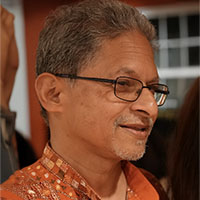
Raja GuhaThakurta
University of California Santa Cruz
Raja GuhaThakurta is a Distinguished Professor of Astronomy and Astrophysics at the University of California Santa Cruz, He received his Ph.D. from Princeton University, completed postdoctoral stints at the Institute for Advanced Study and Princeton University, and was an Assistant Astronomer at Space Telescope Science Institute, before joining the UCSC faculty over three decades ago. He served as the Department Chair from 2019–2023. GuhaThakurta studies the resolved stellar populations of nearby galaxies. He is the founder and faculty director of Creating Equity in STEAM which includes three experiential learning programs. He was awarded the AAS Education Prize in 2025.
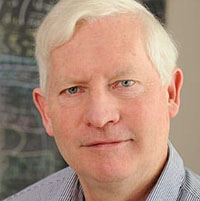
Timothy M. Heckman
Johns Hopkins University
Timothy M. Heckman is the Dr. A. Hermann Pfund Professor in the William H. Miller III Department of Physics & Astronomy at Johns Hopkins University. He was the department Chair from 2015 to 2022. Heckman has served as a member of the NAS Committee on Astronomy & Astrophysics and the Board on Physics and Astronomy, as a member of the Steering Committee of the 2010 NAS Decadal Survey and as the Chair of the Panel on OIR Astronomy from the Ground for the 2020 Decadal Survey. He served as a member of STIC and JSTAC, and as member and Vice Chair of the AURA Board. Heckman’s research has focused on observations of galaxies and supermassive black holes. He has been elected to the American Academy of Arts & Sciences and to the National Academy of Sciences.
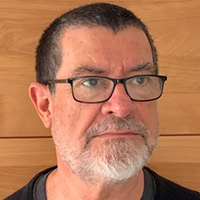
Leopoldo Infante
Carnegie Science and the Pontifical Catholic University of Chile
Leopoldo Infante is a staff scientist at Carnegie Science and a full professor at Pontificia Universidad Católica de Chile (PUC). He earned his physics degree at PUC and his PhD at the University of Victoria, Canada. Infante directs Las Campanas Observatory and founded multiple astrophysics programs and centers at PUC and Chile. His research includes 266 refereed papers cited over 35,810 times, earning him a D-index of 108. He has received national and international awards, including the Guggenheim Foundation Award. Infante has taught and supervised numerous students and served on various international boards.
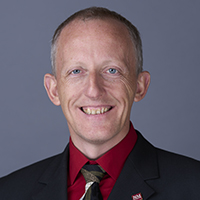
James McAteer
New Mexico State University
James McAteer PhD is Deputy Provost and Professor of Astronomy at New Mexico State University. His service is in academic oversight, student success, and faculty excellence, building relationships among faculty, staff, students, and leadership. As Chair of Astronomy McAteer performed financial management over Apache Point Observatory, and as Director of Sunspot Solar Observatory, leadership in science and strategic planning, community engagement, and fund raising. An NSF Career awardee, he was a member of two NASA missions and a National Academy of Science Future Leader. He has a master’s and PhD in Astrophysics (Queen’s University Belfast) and served five years in the British Army.
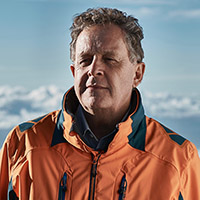
Matt Mountain
AURA President (ex officio)
Matt Mountain, President of AURA since 2015, is the Telescope Scientist for the James Webb Space Telescope (JWST), and a member of the JWST Science Working Group. Previously, he was Director of the Space Telescope Science Institute and prior to that led the construction of and directed Gemini Observatory. He received his Ph.D. in Astrophysics from Imperial College of Science and Technology, University of London. His research includes star formation, advanced infrared instrumentation, and capabilities of advanced telescopes. Mountain is a Fellow of the American Association for the Advancement of Science, the International Society for Optical Engineering, the Royal Astronomical Society and a member of the American Astronomical Society. Full bio here
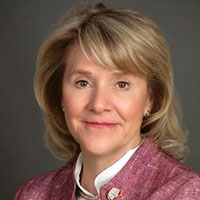
Kathie Olsen
KLO International
Dr. Olsen earned her Ph.D. in Neuroscience at UC-Irvine and did Postdoctoral research at Harvard-Children’s Hospital before becoming an Asst. Professor at SUNY-Stony Brook. She served over 20 years in the federal government in variety scientific leadership positions beginning as program officer at NSF, and then moved to a Senator’s Office who was a member of the Appropriations and Commerce, Science, and Transportation Committees. She returned to NSF and led the Science and Technology Prog. and then was NASA Chief Scientist and Acting Assoc. Administrator for Biol. & Physical Res. Enterprise where she led budget planning and oversaw the development of research initiatives. In 2002 she was Senate confirmed as Associate & Deputy Director for Science for OSTP and in 2005, confirmed as NSF’s Deputy Director. She is now Founder of KLO International, LLC, a consulting firm in Virginia

David Reitze
LIGO Laboratory
California Institute of Technology
David Reitze is the Executive Director of the Laser Interferometer Gravitational-wave Observatory (LIGO) Laboratory at Caltech and Research Professor at the California Institute of Technology. Prior to that, he spent almost 20 years on the faculty of the University of Florida in the Physics Department. His research focuses on the development of ultrasensitive gravitational-wave detectors and gravitational-wave astronomy. Reitze was elected a Fellow of the American Physical Society, Optica, and the American Association of the Advancement of Science. He currently serves on the National Academies Board on Physics and Astronomy in addition to the AURA Board of Directors.
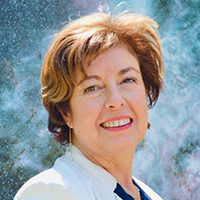
Mónica Rubio
Universidad de Chile
Dr. Mónica Rubio obtained her Ph.D. degree in Astrophysics and Spatial Techniques at the Universitè de Paris, France. She is full professor at the Astronomy Department of the Universidad de Chile and an expert astrophysicist in millimeter-radioastronomy. She is Vice President of the International Astronomical Union (2024-2030). She was President of Division H of International Astronomical Union (IAU)(2021-2024) and has served as President of the Chilean Astronomical Society (SOCHIAS) (2019-2020, 2004-2006), the ALMA Board and the Gemini Board (2008-2014). She was the Vice President of the CONICYT Council in 2019 and Director of the CONICYT Astronomy Program (2007-2014). She currently chairs the Advisory Commission on Astronomical Matters of the Ministry of Sciences, Technology, Knowledge and Innovation. Dr. Rubio was awarded the National Exact Science Prize in 2021.
